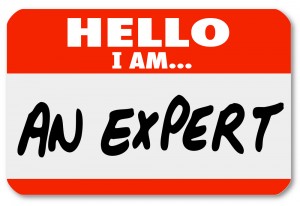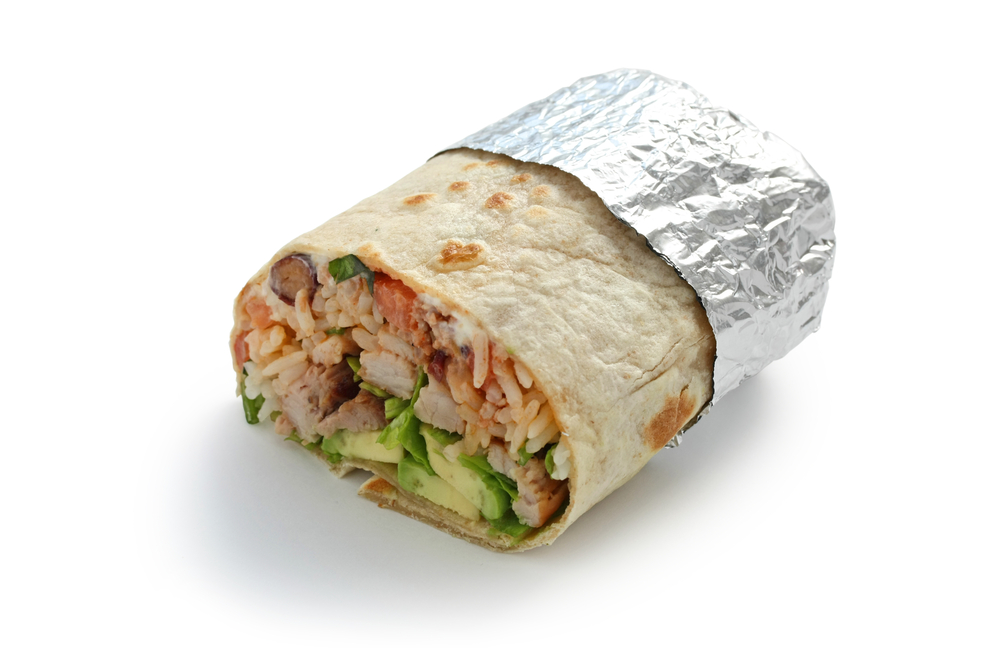What Makes You Think You’re An Expert?
Have you ever stopped to think about what makes someone an expert? Being in the PR world, I’m constantly thinking about this. So when a member of our PitchRate community emailed me this week, I thought now’s a great time to discuss the topic. Here’s Kate’s exact question:
“What makes an expert, exactly? Everyone at PitchRate wants us to be certified experts… help!” ~ Kate
There are actually three answers to this question: A simple answer, a societal answer, and a philosophical answer.
Let’s start with the simple answer first. You’re an expert because you say so. Ta da! That’s it.
Now, will this stand up to “real world” scrutiny from society and the media? Probably not. But it’s a good start.
There are certain criteria that we as a society use to determine if someone is an expert. And for sure, the media uses those same criteria to evaluate if they’re going to use someone’s expertise. For example, a key to being perceived as an expert, particularly in certain arenas, is having the “right” letters after your name. We place a high value on education from certain institutions and having those letters after your name can automatically mean you’re an expert, i.e. we should all listen to what you have to say.
Needless to say, if attending Harvard or Yale is in your future (or your past), you’re probably well on your way to being perceived as an expert.
The next criteria is having a book. Although note that while being an author does still hold water, this is becoming less and less of a credibility builder. With self-publishing being so easy now, writers no longer have to jump through all the traditional publishing hoops. In saying this, having a book published by a name-brand publisher does boost your audience’s confidence in your expertise. As for self-publishing? I believe that writing a book and having a book is still a powerful calling card, a great way to establish yourself as an expert, and a great way for you to share your thoughts and ideas with the world.
The last ingredient that establishes you as an expert in the media’s mind is experience. This doesn’t necessary mean you have to have been around the block a time or two. But it does mean you need to have a track record. No one really cares if you’re a physical trainer that’s worked with thousands of people over the last 20 years. What people care about is that 90% of them have lost 100lbs or more. The latter makes you an expert.
Philosophically, none of this really matters, though, if you don’t think you’re an expert. The most important thing to realize is that you do have something of value to share with the world. You have an expertise that’s going to make a difference. No one else can do exactly what you can do.
I know people can get tripped up with the word “expert”… but for me, an expert is a person who is committed to teaching others something that’s going to make their life better, whether it’s how to bake the perfect cake, reduce stress through meditation, or communicate more effectively with their children. An expert isn’t someone who’s superior, but someone who chooses the path of teaching and does whatever it takes to get his or her message out into the world.
About the Author:
Drew Gerber
For 30 years, Drew Gerber has been inspiring those who want to change the world. As the CEO of Wasabi Publicity, Inc., lauded by the likes of PR Week and Good Morning America, he sparks "aha" conversations that lead to personal and business success. His PR firm is known for landing clients on Dr. Phil, Oprah, Anderson Cooper, The Wall Street Journal, Inc., Entrepreneur, and other top media outlets. Wasabi Publicity lives to launch conversations that make a difference and change the world.
Comments

Related Posts

Get a free E-book
Follow us on Social Media
About Drew

For 30 years, Drew Gerber has been inspiring those who want to change the world. As the CEO of Wasabi Publicity, lauded by the likes of PR Week and Good Morning America, he sparks “aha” conversations that lead to personal and business success. His PR firm is known for landing clients on Dr. Phil, Oprah, The Wall Street Journal, Inc., Entrepreneur, and other top media outlets. Wasabi Publicity lives to launch conversations that make a difference and change the world.







Thanks fior a boost to self-confidence! A great way to start the day! M
You’re welcome, Monica!
I feel the term “expert” is grossly overused, as you said, the media tags the expert title on everything–which waters-down the title.
EXPERT–a person committed to excellence that has demonstrated outstanding achievements in their chosen field of endeavor, thereby, contributing to the betterment of contemporary society.
When I started in the Health and Fitness business, there were strict pre-qualifications–two years of college, two years in a related field, and an athletic background for team work. Three or four applications, Psychological tests, four interviews, like applying at IBM.
If approved, they sent you to their Physical Fitness School, sixty more grueling hours of advanced book learning, tests, hands-on first aid, CPR, Body Tests and a real Physical Fitness Test . . . most didn’t pass.
Now anyone can become a trainer in one hour on a Saturday afternoon.
Most of us would rather be trained by someone like you, though. Credentials still matter to put someone ahead of the crowd.
Pat – yes, credentials do matter.
Thanks for your comment, Rico 🙂
Thank you for this information. I am a marriage and family therapist, as well as a writer, and I was speaking with my collueges about this very thing. How do you financially value yourself when establishing your fee. You must consider yourself an expert and the client is paying for your knowledge, as well as your time.
You’re welcome, Grace. Great timing!
Here in the USA we say an expert is someone 15 miles away from home! LOL, hope you laughed.
I agree it is important to have credentials, but if someone has given their all and truly done their homework to do what ever project they have worked on, then that should be taken into consideration. Not everyone is able to obtain credentials, because of many reasons. Perhaps they did not have the funds to attend school, for one. That doesn’t mean they are any less qualified than a professor with lots of letters after his name. It should mean that person has really done their research and will show as such, within time. However, it is a fact that a person with lots of letters after their name is believed before a layman. Someone with a PhD, or any type of title can make a mistake just like a layman. Bottom line…give credit where credit is due!
There are a lot of millionaires and billionaires that never finished college. You would be surprised at how many do not have letters after their name. A few never finished high school, several were given up for adoption and placed in orphanages, so they had to take a longer road to success, but they believed they could do it and did. Not having credentials did not stop them.
Well said, Sondra. Thanks for commenting!
it is a tragedy society still views titles and college qualifications as the criteria towards viewing anyone as an expert. Doctors for example spend years studying a most beautiful craft then go on to become prescription writers rather than prevention instructors. Adding salt to wounds they ignore fellow physicians, like Dr F Batmanghelidj for example who have accomplished massive successes within their field of prevention. Reason being: – prevention will not fill a wallet like prescription writing does.
many politicians have law degrees, yet where is their perceived wisdom when serving the people? But then wisdom and expertise are not the same thing.
The list goes on but rather than focus on negative inclinations I shall conclude with one expert who defied all odds with amazing contributions to everyday life by forming Grameen Bank i.e. Professor Muhammad Yunus,
The bottom line is this: material success versus serving a higher mission!
Tooraloo
Tomas
Thanks for reading and commenting, Tomas 🙂
You are right about an expert being someone from out of town. It is easier for me to get on the radio when I am traveling. When I was in Adelaide, half way around the world, I had two radio stations interview me.
My area is pedestrian advocacy. I have a monthly television series I have been doing on pedestrian issues since 1996, with interviews in 50 states and a dozen countries. It’s not a book, but it does give me credibility.
That’s so interesting, John. Great!
Thanks, Drew. That’s pretty much my feelings about ‘expertise’. Thank you for the much needed boost. And, Sandra, thanks to you, too, for your input. I do respect credentialed people; I think we all do. We have to. Yet, more and more, I’m finding wisdom among those who ‘walk the walk’. The Web is a wonderful source of folk wisdom, or book knowledge coming down to the local neighborhood through application of learning. It’s been a great thing!
You’re so welcome for the boost, Kate 🙂
Funny how you just came out with this article when I have been focused on this very thing in my field! Lots of people are jumping into the field of eldercare thinking they’re going to make a lot of money, but its a very scary thing for consumers who may not necessarily pay attention to the source of the information they are seeking. Many of these self perceived experts have no formal education in healthcare, no experience beyond caring for a parent or 2 or even less, and no pertinent degree, if a degree at all. I have been seeking definitions and perceptions of an “Expert”, so your timing in this article couldn’t be more perfect! Thanks!
Great! Thanks so much for reading, Angil 🙂
I just put out a post on this exact topic. You’re right that with self publishing, anyone can write a book these days. I personally don’t want to listen to anyone who doesn’t at least have a strong track record in that topic that they’re speaking on. As an inventor, I’ll know the difference between someone who just wrote a book or teaches the subject at a college and someone who has actually been in the trenches and invented. Big difference.
If you imagine that your audience is full of experts in that topic themselves, it really makes you up your game.
Thanks, Julie 🙂 Could you reply here with the URL of your post so others can read it?